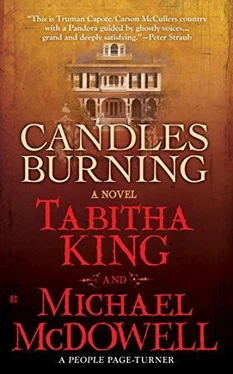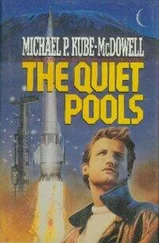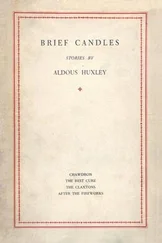I shook my head regretfully.
He looked at me. “You’re gone enjoy college. What’s your next move? You gone let Mank pay your way through school, and then work it off for her?”
I was still thinking about it. “How free am I, right now?”
“Free enough to say no. I’ll pay your way through college, Calley. I’m a thief but I’m your brother too. Most of the money I’ve got was Daddy’s, or Mamadee’s, and we should both be heirs. I’ll give you half. Take you to a lawyer today and sign it over.”
The offer stunned me.
“I’ve got the ransom,” I confessed.
Ford winked at me. “You do have some Carroll in you.”
He watched me take another drink from the bottle and pass it back to him, and fidget, while I turned everything over in my mind.
“You think you can beat Mank at her own game?”
“You did,” I said. “And maybe you’d help.”
Now it was his turn to drink, fidget, glance at the limo, drink again and pass me the bottle.
“I’ll be on the outside,” he said, with a surprised unhappiness in his voice. “I gotta think about it. We’re talking about your soul, you know.”
Impulsively, I gave him a kiss on the cheek. While he was laughing and wiping it off his cheek, I climbed out of the Corvette.
Doris saw me coming and was outside of the limo opening the door by the time I reached it. I glanced back at Ford, before I folded myself into the rear seat. I thought I saw him give the briefest of nods, and then he threw me a double eagle.
ONE of my ghosts evaporated unexpectedly and with embarrassing ease. In a course on meteorology, taken to fulfill some undergraduate requirement, I discovered that the giant ghost in the fog was myself. Mrs. Mank’s headlights had cast my own shadow onto the fog. It’s called the Brocken Spectre. I suffered no chagrin. It happened when I was an ignorant little girl in strange circumstances. The discovery did, however, allow me to dismiss the occasional leakage of other memories of weirdness in my childhood as just as likely to be explainable in rational terms.
The ease with which I pick up languages and sciences, everything that I learned working in radio while I went through the various colleges that I attended, I built into a double-barreled career as a translator and radio producer. There were other schools that I attended under Mrs. Mank’s sponsorship, schools that don’t give degrees to hang on the wall. Under cover of translation and radio production, I have traveled everywhere in this world, gathering and absorbing information useful to Mrs. Mank and her superiors. I was more than a good servant, I was a brilliant one, and as much as I earned, I was never overpaid. I am proudest of the mischief to Mrs. Mank’s interests that I was frequently able to trigger without her suspicions ever being raised. Ford and I between us put many a spoke in her wheels. Toward that end, she knew that someone was playing a long game against her, and that she was weakening and would eventually lose.
She believed that I was passing messages to her from her mama, my great-grandmama, Cosima, forgiving her, giving her direction. Ouija-board stuff, really. Mama, will I go to Hell? Mama, should I buy low and sell high? Mama, should I bet on this politician or that one? Mama, blah, Mama, it wasn’t my fault, I’ve just had to do what I had to do, Mama. Deirdre brought it on herself, Mama, you know she did. Isobel Mank, who scammed the world, let herself be scammed by Joe Cane Dakin’s daughter, with a little assistance from Cosima. It was easy for me to speak in Cosima’s voice, of course, but oftentimes I really was telling her something that Cosima told me to tell her.
I had the pleasure of being at Mrs. Mank’s bedside when she died seven years ago. Cancer of the lungs had invaded her throat, and she had lost the power of speech. All she could do was caw “Uhhhk, uhhk!”
“Joe Cane Dakin wants to tell you something,” I told her, as I sat at her bedside.
She didn’t look good to start but the sound of his name coming out of my mouth, the first time since she took me away from Santa Rosa Island, made her look a lot worse. Like maybe something was sitting on her bony chest, sucking the breath out of her ravaged lungs.
“Uhk!” she cawed.
“He says there’s a party waiting to start in Hell, and all your friends are waiting. Mamadee and old Weems and Doc Evarts and Tansy and Fennie Verlow and her sister, Merry, and Adele Starret and those two poor loonies you had her bamboozle into killin’ him. Fennie and Mamadee won’t sit next to each other, for sure, on account of that awkward little bit of Merry’s poison Candle Bush that Fennie ground into Mamadee’s butter and paid Tansy to put on her toast. But never mind. You’re the guest of honor, and the main course.”
Then, as she stared at me in horror, her eyes like bloody boiled eggs in their swollen sockets, I did her a kindness that closed out any “debt” that she might have imagined that I owed her; I emptied a syringe of morphine into a paper cup and pumped a bubble of air into her veins. It was as merciful a death as anyone might ask. The morphine did not go to waste either. I passed it to someone in pain who couldn’t afford it.
Mrs. Mank left me everything—she didn’t mean to do it, but she had no one else to leave it to and she wasn’t taking it with her, so I made sure the will in her safety deposit named me explicitly.
The house in Brookline is the only one that I have kept. Appleyard lives there and will die there; I have promised him. It was Appleyard who saw to my sexual education. We have been friends ever since. Throughout my life, sex has been the servant of friendship, convenience, and sometimes commerce, and less trouble than it ever was for Mama. While I think of myself as heterosexual, the tenderest lover that I have known was a woman, and she was not the only woman whom I ever knew that way. My taste in men was firmly fixed by Grady Driver: sweet and not too bright. I have never been in love, whatever that means, and trust I never shall be. I have never married, or had a child, and never will now.
My spare time since Mrs. Mank’s passing has largely been devoted to the dispersal of her estate to charitable causes, libraries and disaster relief and so on. I particularly enjoy giving to the Carter Foundation because of its attention to Africa. Mrs. Mank once remarked to me that AIDS was going to wipe out the population of Africa, and entre nous, the depopulation of that continent would be all to the good. She loathed charity almost as much as she did nonwhites. I have amused myself enormously doing with her money exactly what she would have hated done.
I did see Grady again, when he tracked me down by means of the simple expediency of asking Miz Verlow where in creation I was. On my return one winter day to Mrs. Mank’s house in Brookline, my first year at Wellesley, I found him sleeping on the porch with the pair of mastiffs who were supposed to safeguard the place, and me, from what I did not know. Not Grady, in any case. Mrs. Mank was away, as was Appleyard. Price and the maids were off for the weekend.
With the place to ourselves, Grady and I drank Mrs. Mank’s Moët et Chandon and smoked the high-quality bud that my generous allowance from Mrs. Mank afforded me. Grady’s most interesting news was that another child had come to live with Miz Verlow at Merrymeeting.
Fennie Verlow in person, whom I had never seen at Merrymeeting in my time there, had arrived one day with a little boy of five she called Michael. The child wore a sailor suit, which delighted Cleonie, causing her ever after to refer to him as Michael the Sailorman. How it was that Michael came to live at Merrymeeting, Grady, who had been summoned to unclog a sink, could not say but he met Michael sitting on the closed commode in the bathroom in question.
Читать дальше












